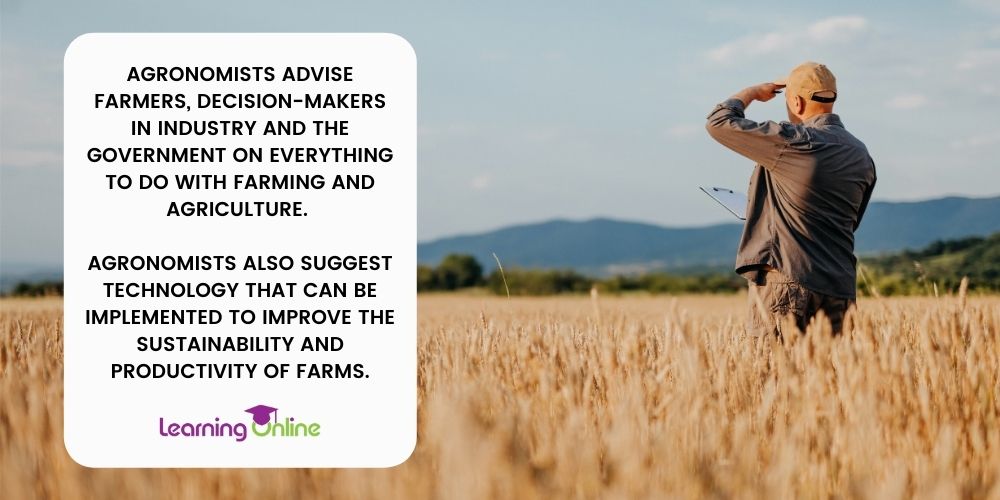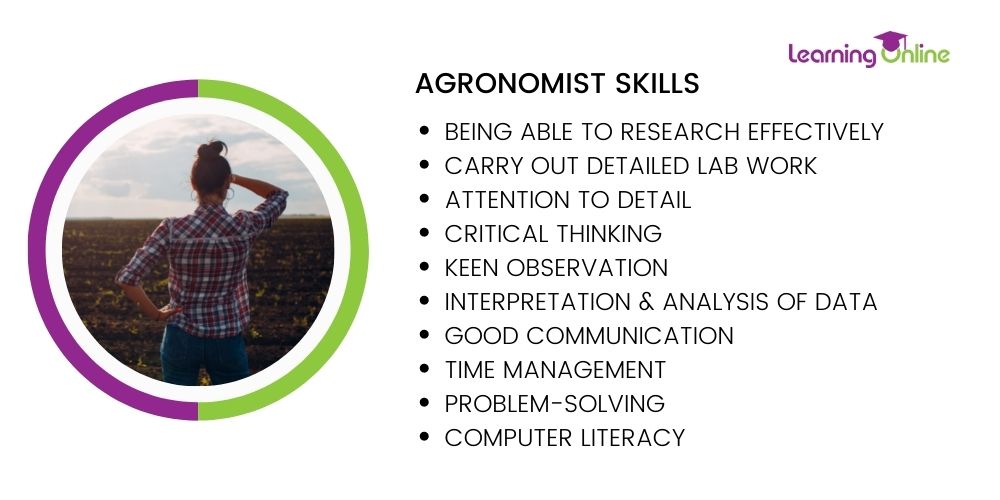If you’re unfamiliar, agronomy is at the root of the food production industry. Every day in New Zealand, agronomists advise farmers, decision makers in industry and the government on everything to do with farming and agriculture. Without successful agronomy, we might not have the crops, livestock and production methods we need to feed the nation – it’s that important!
As well as researching the best methods to improve production, agronomists also suggest technology that can be implemented to improve the sustainability and productivity of farms. As supply chain issues worldwide become the norm, it’s all the more essential that we grow and develop the domestic market to fulfil the needs of the population from our homegrown agricultural sector.
So, are you someone who’s interested in learning more about the management of soil and crop development? Are you considering agronomy courses but not sure where to begin? Then read on, as we’ll break down what an agronomist does and how you can take your first steps in this essential area!
What does an agronomist do?
As an agronomist, you’ll perform the essential duties needed to act as a “crop doctor”! Your main concern is looking after the health and well-being of crops used for food production, biofuel, medicine and land reclamation, and you may be responsible for conducting experiments on farms.
The results of these experiments are then used to develop the most ideal on-farm practices to improve the quality and production levels of crops in a sustainable manner. They do this by critically examining crops to determine how to treat and prevent diseases, encourage growth and produce high-quality crop yields.
Agronomists may also work in the fields of forestry and green infrastructure – for example planning tree removal and replacement programmes, or helping with landscaping services by providing advice on disease prevention for trees and shrubs.
Tasks & duties of an agronomist
What are the daily duties of an agronomist then? Well, day-to-day agronomists will be involved in completing a number of tasks to fulfil their responsibilities.
This duties may include:
- Collecting and analysing samples
- Developing budgets for facilities
- Advising on ways to improve production
- Conducting inventory and tracking to make sure plans meet regulations
- Identifying problems, such as pests and diseases, and advising on treatment/developing strategies to deal with them
- Giving advice about the care of livestock
- Examining how environmental factors affect crops and how to protect plants from harsh weather
- Coming up with ways to conserve water
- Collecting data to clarify and support agricultural plans
- Travelling around the country to meet with farmers and share knowledge
As you can see, there is a mixture of technical and hands-on tasks that agronomists may need to carry out. But what skills do agronomists need?
In order to be successful as an agronomist, you need to have or develop a varied skill set to be a desirable team member in this sector. This includes being able to research effectively, to carry out detailed analysis and lab work. An attention to detail, critical thinking and an ability to observe and draw conclusions from analysing different data is likewise crucial.
Good communication and time management are equally necessary skills, as is the ability to problem solve effectively and confidence in your ability to work with computers. The advice derived from your findings, your ability to problem solve, and your capacity to communicate and implement these solutions as an agronomist is vital. Especially as this guidance will be used to help ensure New Zealand continues to operate as a global agricultural powerhouse, with high exports of certain fruit and vegetable crops. Not to mention that you will also be responsible for investigating methods to feed more people using less water and farmland, as we turn our attention to sustainable methods of cultivating resources.
In short, as an agronomist you need to be practical, insightful, determined and driven to make a difference across New Zealand society. Does this sound like you?
Agronomists and the environment
Agronomists can work in several different environments, but their places of work will predominantly be in a lab or on a farm. Regular travel is also a feature of this career, as visiting farms and presenting your lab/research findings publicly could also be a natural progression in this position.
Agronomy is a great career for those who love to learn about the environment. And as a significant amount of an agronomist’s duties are performed outside, it’s an ideal occupation for those who yearn to be out in the open air, having a lot of direct contact with nature.
Agronomists, on average, work around 45 hours per week and earn $65,000. These hours may change with the season and climate, as the average salary varies depending on skills and experience. In particular, agronomists are in high demand and can often find job opportunities in related fields such as animal welfare, biosecurity, sustainable land use, food safety, environment and conservation.
You could work in traditional agricultural settings or in the rehabilitation of ecosystems to preserve and enhance biodiversity. You could also find your calling in the quality certification and analysis of plant, animal and forest-based products, or in technical sales roles where you provide consultancy and assistance for agricultural products. The possibilities are vast with a certification in this industry!
Job growth in this sector is strong, but you can’t be someone who’s afraid of getting your hands dirty!
Are you seeking progression within the agricultural sector? With a focus on the agronomic study of conventional broadacre farming systems in New Zealand and developing the skills necessary to analyse and monitor different cropping and livestock systems, our agronomy short course could be for you!
You’ll study the central areas of this field over three modules: Agronomy, Farm Management and Soil Management. A certificate in agronomy helps develop cross-functional skills and knowledge in agronomy, research agronomy, agribusiness management, regional sales management and marketing, agricultural logistics, farm management, farm support roles, and agricultural real estate (sales) as well as the processes involved with the planning of year-to-year on-farm operations.
Created to be accessible and affordable, our agronomist courses in New Zealand are the most flexible way to start your new career. With 24-hour access, you can learn when it suits you with the full support of our experienced and knowledgeable tutors.
If you’re unsure where to begin, you can contact our course consultants who’ll be able to identify if this course can truly help you to build the career you’ve always dreamed about. Take the first step with us today and discover how mastering the knowledge of agronomy can transform your job prospects for years to come!


